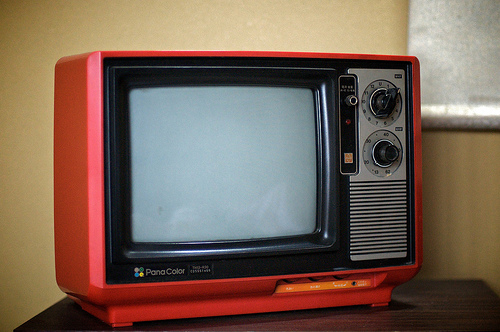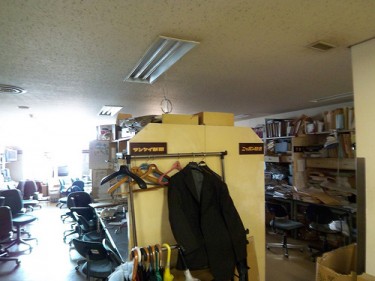Because, here, the flow of information has so far been controlled by the mainstream media through a system called ‘the kisha club’.
Kisha clubs [2] [en], literally means reporters’ club or press club and is best defined as ‘news gathering associations’ present in almost every public institution such as ministries, police, and corporate bodies etc. Among the clubs tasks is the management of the press conferences of the institutions they cover.
As is detailed in their charter [3] [en]:
In an era when accurate information backed up by serious news gathering based on media ethics is increasingly being sought, kisha clubs assume the social responsibility of checking the exercise of public power by officials and seeking the genuine disclosure of information from public institutions. Kisha club members and conference attendees are required to fulfill such important roles.
Only journalists working for a few mainstream media organizations are allowed to be members and, accordingly, to participate in the news conferences organized by the kisha clubs.
Free-lance journalists and, often, foreign media are excluded. Whenever they are allowed to attend, they may not ask questions.
On February 13 Takashi Uesugi [4] [ja], one of the most popular independent journalists, who calls for the abolition of the kisha club systems [5] [en], tweeted [6] [ja]:
上杉隆「ツイッター、ユーストリームが一次情報を独占する記者クラブの壁を超えた。それ以前にこの記者クラブのシステムが日本人に知られていない。公権力の匿名は許されないというのが当然のジャーナリズムのルール」7:45 PM Feb 13th TweetMe for iPhoneから
In a change of direction, some representatives of the government elected last year decided to open their news conferences [8] [en] to all professional journalists. Those working for online media seized the opportunity and immediately began to attend press conferences with their equipment to be able to broadcast the events live.
Last September Tetsuo Jimbo [9] [en], veteran video journalist plus editor and CEO of videonews.com reported [10] on the novelty: a minister's press conference open to all professional journalists.
まず大方針は「原則として、記者クラブ所属報道機関以外の全てのメディアにも解放する」(岡田氏)です。
[…] これまでは、仮にその団体の加盟社の記者でも、社を通じてそれぞれ当該の記者クラブに入会していることが必要でした。それぞれの報道機関の社内ポリティックスなどの事情で、新聞協会加盟社の記者であれば誰でも会見に出られるというわけではなかったということです。
それが、これからは基本的には、上記の団体に加盟している社の記者であれば、誰でも会見には出られることになるので、例えば朝日の別の部署の記者が、朝日の記者クラブの記者に気を遣って会見に行けないとか、NHKのクローズアップ現代の記者やNスペのディレクターがNHK報道局の外務省霞クラブ所属の記者に会見の出席や撮影を妨害されるというような馬鹿げたこと(これが本当にあるんですよ。)もなくなります。
[…] Until today, journalists belonging to an organization with a kisha club had to work through their company to become member of that club. Also because of the politics internal to each company, journalists could not attend whichever conference they wished.
From now on, in line with this new policy, [besides free-lancers, magazines and online media reporters] all journalists who work for a member-organization can attend any conference. This means that, for example, an Asahi reporter belonging to a certain club won't need to feel bad if they wish to attend the conference of another club different from the one they were assigned to. Or an NHK director who works for shows like Close Up Gendai or NHK Special won't be hindered in filming or attending a foreign minister's conference by a colleague NHK reporter who usually covers that ministry. And such ridiculous incidents (because these really did happen) won't occur anymore.”
Ustream, in particular, has been serving as an alternative media source to circumvent the mainstream media filter on the flow of information.
Well known is the case of the popular video sharing website Nico Nico Douga who since last year have been providing a live broadcast service to its users [11] [ja]. Their staff now regularly attend the weekly foreign minister's press conference, allowing their audience to interact directly with the presenter. Not only they can watch the event live but also type questions onto the web-page which will be picked up by Nico Nico Douga staff and asked directly of the minister. According to Nico Nico Douga website [12] [ja], their users have been able to ask questions on the American military bases issue [13], Sea Shepherd's activists [14] [en], Japan's aid to Afghanistan etc.
Foreign Minister Okada's news conference live broadcast on Ustream by Yasumi Iwakami on June 29.
Blogger nob1975 commented [15] on the opportunity that citizens and netizens now have to watch their politicians’ news conferences before TVs and press edit and filters them.
国民が、一次情報に触れる機会が、いままでかつて、あったろうか?
政治家も、バラエティショーの一環としての「報道番組」、政治をネタにした完全なる「バラエティ番組」、司会者の仕切りがうざい「討論番組」から飛び出して、記者クラブも通さず、じかに、国民に向けて、情報発信できる時代。
素晴らしいと思う。
[…]
エポックメイキングな瞬間だったと思う。
This is an era when politicians can talk to citizens directly without going through kisha clubs or participating in “news programs” that are part of entertainment shows, “variety shows” that take up politics as entertainment fodder, or “talk shows” where the host carries the conversation.
I think this is wonderful.
[…]
I felt it was an epoch making moment.
Independent journalists like the above quoted Takashi Uesugi or award-winner Yasumi Iwakami [16] [ja] have also made of Ustream a tool to create open debates specifically on the “kisha club system”, to raise awareness among the Japanese people on how the information they get is often biased and limited. An example is the debate between Uesugi and economist Nobuo Ikeda [17] [ja] on “police leaks to media”.
Here is how Iwakami's profile reads at his Ustream page [18]:
フリージャーナリスト・岩上安身が、どこにでも出かけて、誰にでも取材し、可能な限り、ダイレク トに情報をお伝えします。インタビュー、対談、記者会見、などなど。
Finally, Hiroshi Hirano, editor of the daily mail-magazine Electronic Journal, who criticizes [19] monopoly in information, being it contrary to the principles of democracy, warns the dangers that the media's powers bring.
情報を自分たちだけでずっと独占していればそれは一種の利権と化し、政治家側や官僚側から利用されやすくなるのです。

